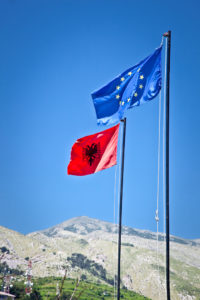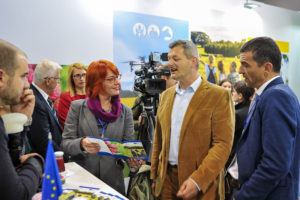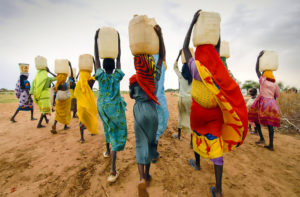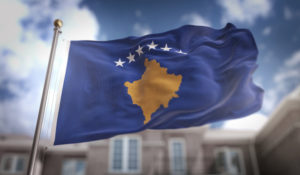
Technical Assistance for the Capacity Building for the Ministry of European Integration and Line Ministries for the Preparation of the Negotiation Process and Legal Approximation (SMEI IV)
Albania became an EU candidate country following the European Council’s decision in June 2014. The integration process is underway in line with the priorities set out in the Stabilisation and Association Agreement (SAA) and the EU’s Enlargement Strategy. The purpose of this project is to assist the Albanian

Support to the EU Integration Process of Albania
The project aims to assist the Government of Albania to strengthen the EU integration process in line with the priorities of Stabilisation and Association Agreement and accession negotiation processes by: Supporting effective alignment of national legislation with the EU acquis and its implementation. Further strengthening the capacities of

Visibility and Communication for Actions Related to AA/DCFTA Implementation in the Framework of the EU Funded Assistance Programmes
The National Implementation Plan of the EU-Moldova Association Agreement (AA) establishes key priorities to foster political association and economic integration with the EU, including actions assigned to institutions involved in the AA/DCFTA (Deep and Comprehensive Free Trade Area). The DCFTA defines a preferential, mutually advantageous trade relationship between

Capacity Building for the Alignment with the Acquis in the areas of Agriculture, Rural Development, Food Safety, Veterinary and Phytosanitary Policy
This project improves the planning, legislative, and institutional capacity of Serbia’s Ministry of Agriculture , Forestry and Water Management part of the country’s preparations for EU membership. Project supports Serbia in the EU accession process through the preparation of the Negotiation Positions and drafting or amending the national

Technical Assistance Support to the Women’s Breakthrough Project
Over the next century, half the world’s population growth is expected to take place in Africa. It is recognized that one of the continent’s most significant development challenges will be creating enough quality jobs and to employ this population growth. Gender equality, particularly the inclusion and empowerment of

Harmonisation of Kosovo Legislation in the Field of Working Conditions with EU Legislation
Improving the working conditions through the harmonization of legislation in the field of working conditions with EU legislation and increased awareness of relevant stakeholders is vital for employees. Thus, this contract aimed to increase institutional and technical capacity for effectively addressing labour policy issues in Kosovo while providing

